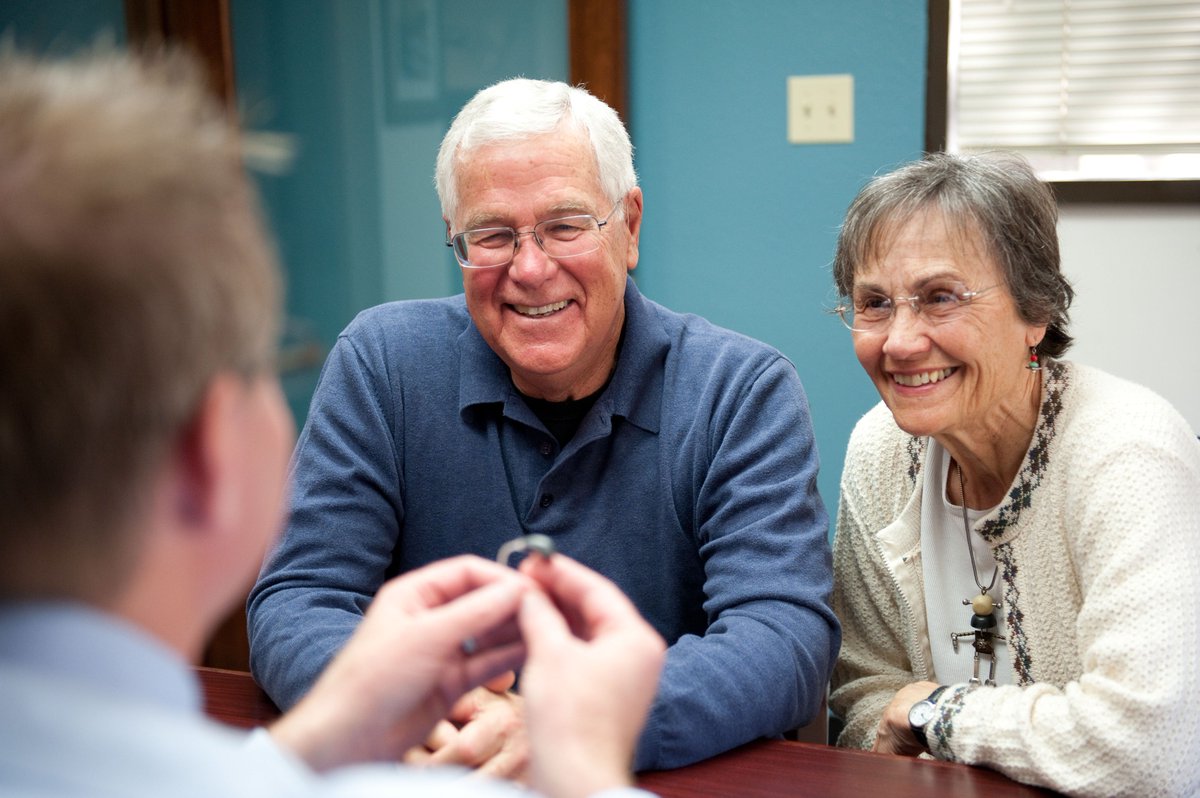

From spending more time with family and friends to taking classes at the local gym, almost everyone makes at least one New Year’s resolution. The catch? Just 8% of resolvers stick to their goals, per a Forbes story referencing University of Scranton research.
No worries: If you’re aiming to hear your best in 2020, we’re sharing five tips to help boost your stick‑to‑itiveness for the new year and beyond!
Steps to Better Hearing
Protect Your Hearing – One in three Americans with hearing loss has noise-induced hearing loss. Noise-induced hearing loss is caused by damage to the sensory cells or hair cells found in the inner ear (cochlea). Loud noise exposure causes damage to those hair cells and ultimately causes them to die. Hair cells do not regenerate once they die. Noise damages the hearing system based on two factors, how loud the noise is and how long you are exposed to it. There are three ways that you can protect your hearing.
Quit Smoking – People who smoke are almost twice as likely to have hearing loss as those people who do not smoke. Additionally, people who do not smoke but live with someone who does are also more likely to develop hearing loss. How does smoking impact the hearing system? The nicotine and carbon monoxide in cigarettes restrict blood flow, preventing oxygen from effectively circulating in your inner ear. Poor blood flow can permanently damage the sensory cells in the hearing organ.
Exercise – Maintaining good overall health is also important in maintaining good hearing health. Exercise is a great way to help decrease your risk of chronic illness and other risk factors for hearing loss. People who are overweight are more likely to develop type 2 diabetes and people who have diabetes are twice as likely to have hearing loss. Being overweight makes it more difficult for the heart to circulate blood throughout the body, and that includes the small structures of the inner ear. Having high blood glucose levels may also damage the blood vessels in the inner ear.
Have Your Hearing Tested – A comprehensive hearing evaluation performed by an Audiologist is the first step in identifying hearing loss. Results of a hearing evaluation may help your Audiologist identify the cause of the hearing loss and will also assist in determining appropriate rehabilitation recommendations.
Contact us today to make your appointment!
SHARE THIS PAGE!